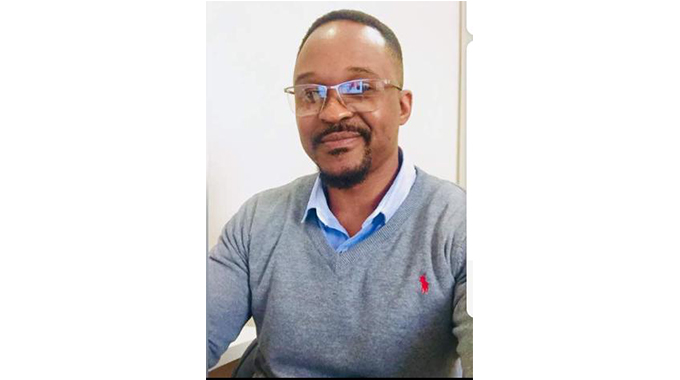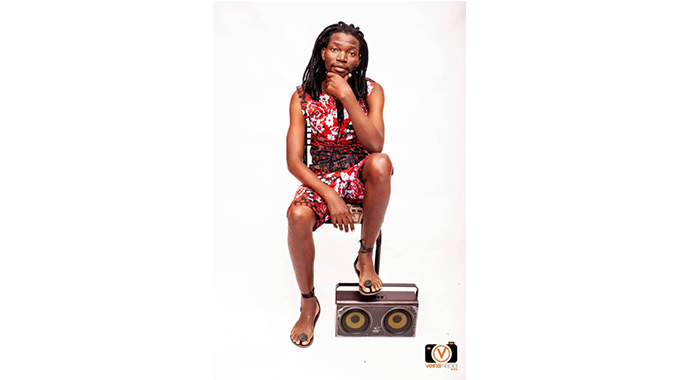A Christian’s journey into Islam

Nqobile Tshili, Chronicle Reporter
A BULAWAYO lawyer has shared how contradictions he thinks are in the Bible led him to convert to Muslim which he describes as the “most intimate” faith to the Creator.
Mr Farai Museta, who was raised in a Christian family and was a member of the Anglican church, said while conducting his Advanced Level at Christian Brothers’ College in the late 1990s, he had an atheist English literature teacher, who encouraged them to be critical thinkers and never look at things at face value.
He said his teacher heavily criticised most religious beliefs, prompting him to seek the truth.
Mr Museta, who now has a Muslim Arabic name, Fareed Abdul, meaning ‘‘the unique servants of the most powerful,’’ has no regret of ever joining the religion.
His legal name remains Farai Museta.
He narrated to Chronicle that while in the process of finding his faith, he extensively researched on various religions: Christianity, Buddhism, Muslim but was most struck by Islam.
Although not sharing some of the perceived contradictions in the Bible, Mr Museta said he has never looked back since converting to Islam with his wife and three children back in 2008.
He said he is the only member of his family who converted to Islam.
“I was raised in a typical Christian set up going to the Anglican church. My past question on the concept of God began when I was in high school, I think when I was in Lower Six. Between 1998 and 1999, I had an English Literature teacher who was an atheist and he taught us to be critical thinkers and readers. He used to criticise religion quite a lot. So, I started to read the Bible in a more critical sense, not from a spiritual sense but rather as a book. When I did that, I came across a lot of contradictions, a lot of questions that didn’t seem to be answered by my faith, which at the time was Christianity. I started to question religion and other religions, and the idea of God,” said Mr Museta.
He said a decade later after completing his high school studies that is when he committed towards being a Muslim.
Mr Museta said after completing his Advanced Level, he moved to South Africa where he studied law at Rhodes University, heightening his critical thinking skills while being charmed by Islam.
“My first steps toward embracing the religion started when I was a prosecutor at the High Court in Bulawayo in 2008. A friend of mine gave me a textbook about Islam and I became more curious. I won’t go into the spiritual reasons but I became more curious and the more I read it lured me towards it. I remember going into one shop owned by Muslims. I had learnt the greeting in Arabic which is ‘As-Salaam-Alaikum’ and the guy responded, before asking if I was Muslim. I said ‘no.’ I remember it was on a Friday, congregational prayer. He asked if I could come to the mosque and I agreed. I joined the prayer meeting and that is where I felt I had really connected to the religion. Within two weeks, it was the month of Ramadan, the month of fasting and praying which I participated in. So ever since I have never turned back,” he added.
Mr Museta said his friends and family were initially shocked to learn that he had converted to Islam as most of them did not know anyone in that religion.
He said he realised that being a Muslim widely differs from Christianity.
“It’s a different life as compared to the Christian life. There is a lot of control on the things we do and everything we do is associated with Allah, even when you wake up, we pray five times a day even when you go to the toilet, everything you do you connect to Allah. It’s like a constant state of worship,” said Mr Museta.
He said misconceptions associated with Islam is one of the major challenges they face.
Mr Museta said even their dress code is highly contested by non-believers.
“The typical challenges faced by Muslims is obviously that we are terrorists, violent in nature. We are fond of violence and that our religion teaches extremism to the point that we want to force everyone to join Muslim, that we want Shariah to be applied to the world. These are all big misconceptions. Islam is a religion of moderation, everything we do is moderation, extremism is not something that is accepted in Islam,” he said, adding that he would not have raised his children in a Muslim way if it promoted intolerance and violence.
“There is no way I would raise my children in a religion that advocates for violence and murder. I would like to think I’m educated and smart enough to know if something is good or bad.”
Sheikh Isaac Ali who leads the mosque in Barham Green said he has observed an increase in the number of people joining the Islamic religion particularly in Bulawayo
He said Muslims face a myriad of challenges as most people do not understand them, thinking that they are merchants of violence.
He said a lot of people even in Zimbabwe want to associate Islamic religion to terrorist organisations such as Boko Haram and ISIS.
“Even when you put on Muslim attire and you go into a bank, people won’t tell you directly but you can tell from the way they look at you that they are not comfortable around you. When they look at a Muslim, they look at Boko Haram, ISIS terrorist gangs. It is dealing with that which is a challenge. In as much as nothing in this part of this world particularly in our country has happened in terms of terror, but still as people are exposed to media, social media. That information reaches them. And when they see a Muslim, they say you are one of them (Boro Haram or ISIS),” he said.
Sheikh Ali said to the contrary, Islam does not promote violence and its propaganda that when one dies through suicide bombing, they will get 70 wives in after-life.
“When it comes to suicide bombing, that to Islam itself, is considered haram, it’s prohibited, it’s totally prohibited to kill yourself. Secondly to kill a person unjustly, Islam considers that if you kill one person you are considered as if you have killed the whole mankind. If you save one soul it’s as if you have saved the whole mankind,” said Sheikh Ali.
He said he was in the process of setting up a children’s home in Inyathi, Bubi district, Matabeleland North, as they try to positively impact communities. — @nqotshili










Comments